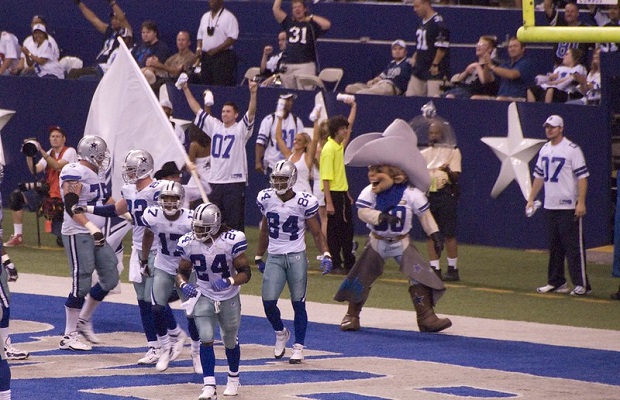- Arsenal vs Ipswich: Player Ratings from 4-0 victory
- Confirmed line-ups: Ipswich Town vs Arsenal – Trossard & Zinchenko start
- Arsenal make enquiry for Italian midfielder Nicolò Rovella
- Arsenal in strong position to sign Viktor Gyokeres
- Arsenal ‘best positioned’ to sign Lyon ace Rayan Chekri
- Arsenal learn Benjamin Sesko’s asking price from RB Leipzig
- Arsenal plot audacious swoop to sign Ousmane Dembele
- Arsenal showing ‘concrete’ interest in Kingsley Coman
- Arsenal in front of the queue to sign Jesus Rodriguez
- Arsenal eye AC Milan’s Malick Thiaw for summer move
Dallas hasn’t won a Super Bowl for 27 years. Why is it still the most profitable sports club on the planet?
The Cowboys remain where they were many years ago – they are loved and hated in equal proportions; a whole generation has already grown up, not having seen the team’s big victories; and, most importantly, they are still «very rich».
The American People’s Team has just begun training for the 2022 season at training camp in Oxnard, California. It has been 27 years since their last Super Bowl win. During this time, Dallas won only four out of 15 elimination games and never advanced beyond the second round of the playoffs. Since Dallas’ last triumph, 13 different clubs, including two division rivals, have won the Super Bowl, and the Pittsburgh Steelers and New England Patriots have surpassed the Cowboys in the number of Lombardi prizes won in history.
Today bookmakers offer a huge amount of juicy bonuses for new bettors. If you want to make a bet, then visit this link https://bookmaker-ratings.in/bonuses/. You will find a list of bonuses that bookmakers offer for the registration, as well as temporary promotions, dedicated to popular sports events.
The hype doesn’t subside
Neither mediocre results nor scandals slowed down Dallas’s economic growth. This star burns brighter than any other supernova in the American sports universe – not even the New York Yankees and Los Angeles Lakers can compare with it. This season, Dallas will play five games of the regular season in prime time – this is the maximum for the team. The team remains the main topic of discussion in the press, regardless of their current results.
In terms of financial results, the Cowboys are invulnerable. Even during a Super Bowl drought, Dallas had money rain. Since 2016, the Cowboys have regularly topped the Forbes list of the most profitable sports clubs. In an age where clubs are bought for astronomical sums, the Cowboys would set an all-time record if a club was ever put up for auction. Forbes believes that the market value of Dallas is $6.5 billion, but this is almost certainly an underestimate.
«The sport itself is very popular. There is a lot of intrigue in the matches, the players are getting better every year, and all this has already become part of American culture» – explains sports business consultant Mark Ganis.
Economic system
The cases of the Denver Broncos and Chelsea, which recently changed owners, are very indicative. Chelsea, one of the six biggest clubs in England based in the capital of a major European country, was sold for $3.2 billion. The Broncos, just the tenth most valuable NFL team outside of the top US markets, were sold for $4.65 billion.
The Chelsea brand is more global than the Denver Broncos, but economics make a top 10 NFL club sell for more than Chelsea.
According to Badenhausen, the combination of the league’s outrageous wealth and the wise way in which that money is distributed has resulted in NFL clubs being ranked higher than more internationally known teams. In the Forbes top 50 most profitable clubs, more than half are from the NFL, including three teams in the top 10.
The NFL is the richest sports league in the world. It generates billions of dollars every year, mostly from the sale of TV and streaming rights, with revenues shared equally among all 32 clubs. In 2021, the league earned about $18 billion, which aligns with the NFL’s goal of making $25 billion in 2027. Last year, the NFL signed contracts with CBS, Fox, NBC, ESPN and Amazon through 2033 for a total of $113 billion, meaning each club would receive $300 million a year.





